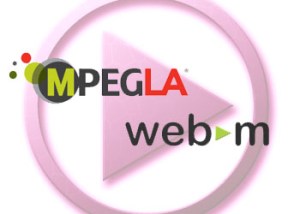
Last month, Google unleashed a firestorm of controversy by announcing it was dropping support for “patent encumbered” H.264 video in its Chrome Web browser and placing its bets on the VP8/WebM as a “completely open codec technology.” However, The MPEG Licensing Authority—MPEG LA—is giving patent holders a chance to try to sink their claws into WebM: the organization has issued a call for patents (PDF) that may apply to the VP8/WebM codecs. Companies that believe their own a technology essential to the codec have until March 18, 2011, to get their initial details to MPEG LA—the organization is mainly interested in existing, issued patents, but pending patent applications will also be considered.
MPEG LA first indicated it was considering the possibility of trying to create a patent pool for VP8/WebM in mid-2010.
MPEG LA is a company that handles licensing for patent pools that cover a range of digital video and networking technology, including MPEG-2, MPEG-4, IEEE 1394 (FireWire), and the AVC/H.264 standards. MPEG LA is also working to assemble a patent pool for licensing of LTE technology for 4G phone services. The idea behind the patent pools is that companies can execute a single license with MPEG LA to use a technology, rather than having to go to potentially dozens of companies and ink individual deals for bits and pieces of things that make up technology standards. MPEG LA strives to make licensing terms fair and reasonable so licensees can have a good idea what they can expect to have to pay in royalties in a variety of conditions. However, the organization has also been the subject of much criticism, and some see the call for patents that may apply to the VP8/WebM standard as little more than a scare tactic to keep users away from the technology.
Of course, it remains to be seen whether any companies will come forward with substantiated claims that their technology is an essential part of WebM. Although some have noted similarities between H.264 and WebM, WebM was explicitly designed (with development sponsored by Google) to be a royalty-free, unencumbered video compression format—and Google has irrevocably released all of its patents on VP8. WebM is currently supported by Google Chrome, Firefox, and Opera, as well as a variety of media players and Android 2.3. AMD, ARM, Qualcomm, Texas Instruments, and Broadcom have all announced plans to offer hardware acceleration for WebM content.


